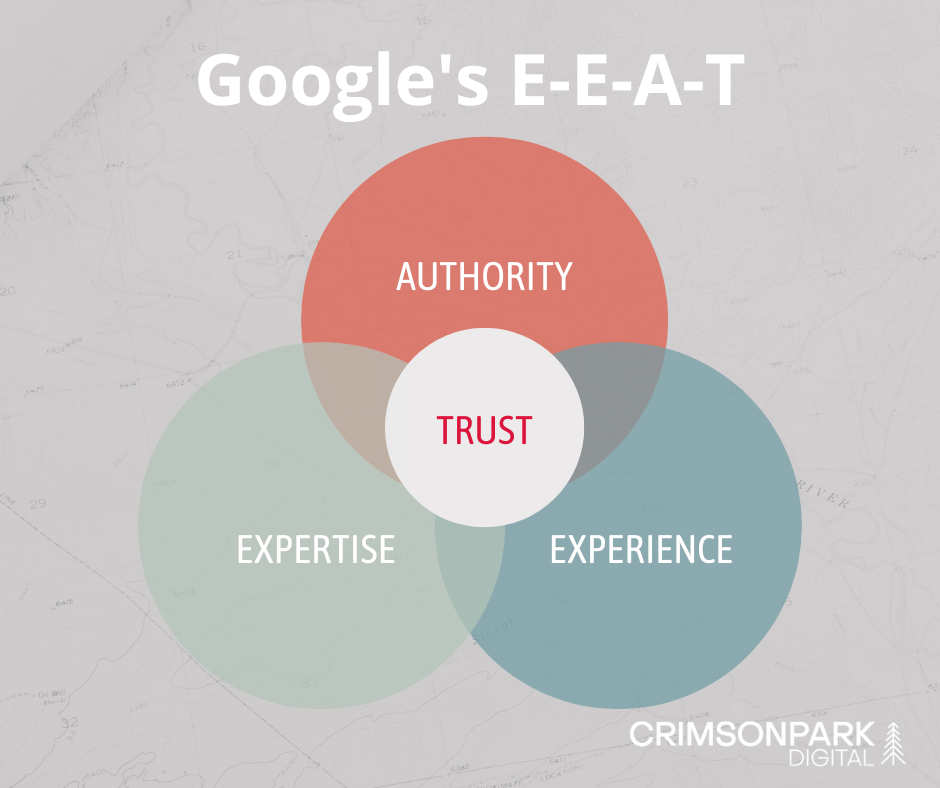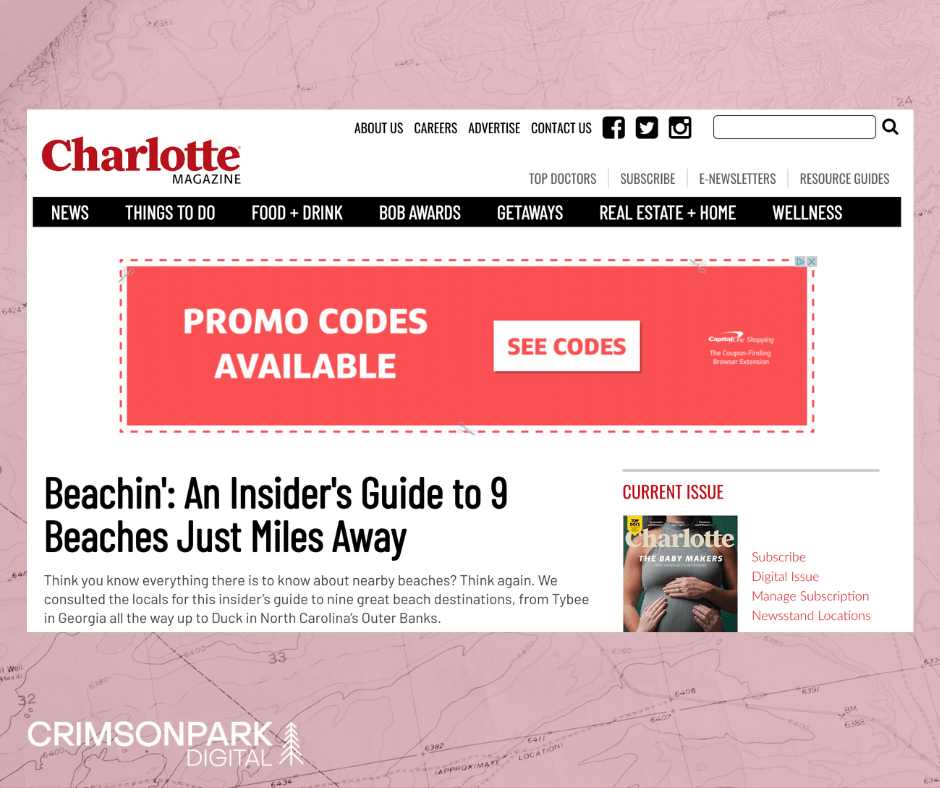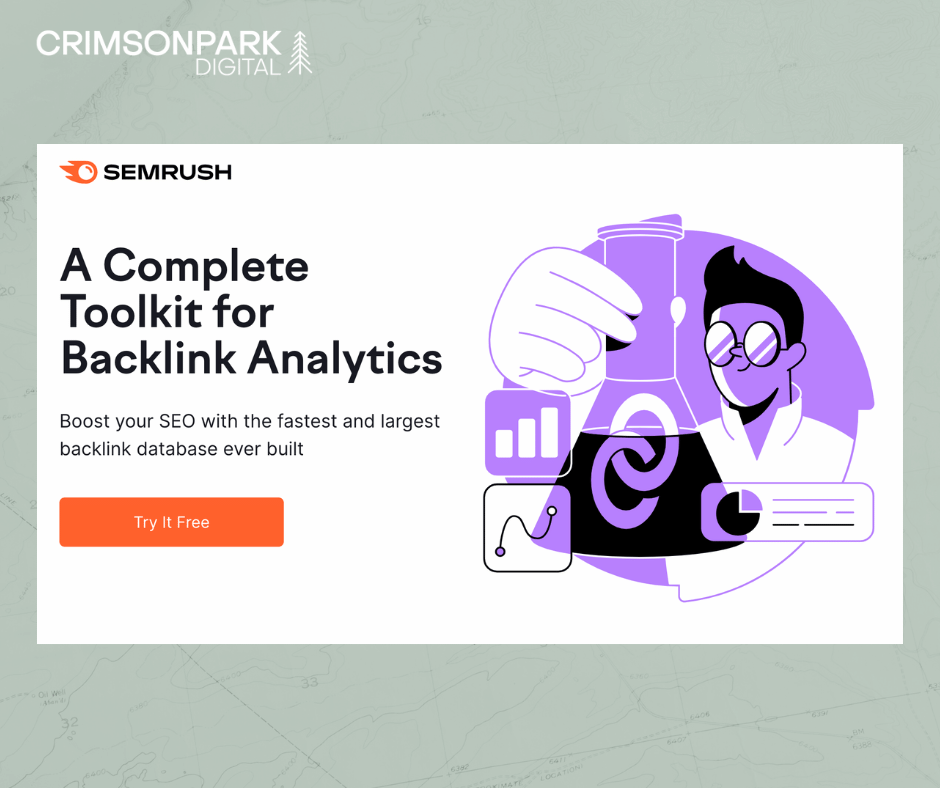Strategies for Building Authoritative Backlinks to Boost Your E-E-A-T
Search Engine Optimization (SEO) is the stuff that gets your website ranked in search result pages, and in front of the people who should see it the most: your ideal customers. SEO techniques elevate your website from competitors and enhance the perception of your brand.
Whether you’re just beginning to learn about search engine optimization, or looking for ways to improve your brand’s strategies, hiring an SEO marketing agency could be the step your brand needs to take to start attracting the right eyes to your site’s content. We’re here to motivate you to take the proper steps to boost your website’s E-E-A-T with backlinks and increase your inbound traffic.
A Quick Overview of E-E-A-T
Up until late 2022, Google ranked websites based on their “E-A-T” rating. That ranking system has since been updated to become “E-E-A-T,” which stands for Experience, Expertise, Authoritativeness, and Trustworthiness.
Note: we’ll refer to E-E-A-T as just EEAT for the rest of this article. If you want to read it as a word in your head, imagine how Cookie Monster would pronounce “eat!”

Google has a not-so-secret handbook that outlines how the quality of search results should be evaluated. These guidelines, called Google’s Search Quality Rater Guidelines, help “Quality Raters” (yes, this is a real job for about 16,000 people) measure the reliability of the search engine’s algorithm updates.
EEAT isn’t the only thing Google uses to decide where a website will appear on the search engine results page (SERP), but it’s an important factor that brands have some level of control over.
Now, for what each of these search results ranking factors means:
- Experience: The extent to which the content creator has legitimate experience with the topic. Basically, your website content should be relevant to your industry.
- Expertise: The extent to which the content creator has the necessary knowledge for the topic. So, within your industry, are you touching on subjects that truly apply to your brand?
- Authoritativeness: The extent to which your website is the go-to source for the topic. Does your website have the most up-to-date content related to your business, or do users find that information on other websites?
- Trustworthiness: The extent to which the website is accurate, honest, safe, and reliable.

Regardless of how Google judges your website, taking steps to influence each of these areas positively will benefit your brand by demonstrating to your customers that you are legitimate, ultimately leading to conversions.
Optimizations to the user experience (UX), publishing meaningful content, and receiving valuable backlinks can all help benefit your website’s EEAT rating.
What Are Backlinks?
Backlinks are links to your website from another website. These inbound links can help improve your EEAT rating because they indicate that your website is valuable to users.
For example, suppose your company provides boat charters in Wilmington and is featured in a “things to do on the coast” article by Charlotte Magazine. Search engines will consider that Charlotte Magazine is a legitimate source, so your business must also be legitimate.

In this example, the magazine’s backlinks are considered “authoritative” because they are relevant, trustworthy, and likely to have a high EEAT rating.
Authoritative vs. Non-Authoritative Backlinks
Boosting EEAT with authoritative backlinks tells search engines that the linked content is valuable, credible, and useful to searchers. Seeking backlinks from sites with high authority ratings will benefit your website because those backlinks are basically telling Google, “This stuff is legit.”
Alternatively, non-authoritative backlinks are found on spammy or irrelevant websites; avoid these at all costs.
Backlinks from a high-authority site are the ones that matter, but they can be difficult to get. Having a strong handle on SEO and a backlink acquisition strategy are essential steps to receiving these plugs.
SEO agencies use tools to analyze the domain authority and relevance of backlinks sites and can generate lists of potential link-building targets. Attempting this without an agency is possible, but it may lead to more headaches than it is worth.
How to Receive More Authoritative Backlinks
The following techniques can be used to boost EEAT with backlinks from high-authority websites to your content:
- Create high-quality content that is original, helpful, and written by people who understand the customer’s pain points.
- Be transparent in how content was created: be sure to mark when content was written by AI, reviewed by a subject matter expert, or a real customer.
- Cite official sources or studies when relevant to increase the credibility of the content.
- Encourage social media user-generated content (UGC), which will provide testimonials from real people, something search engines value.
- Manage brand reputation by responding to reviews, only sharing legitimate feedback, and keeping your website up-to-date with the latest information related to your company.
Each technique will tell an authoritative external site that your brand is worth linking to, leading to more backlinks.
Tracking and Analyzing Your Link-Building Progress
Certain marketing tech tools allow brands to monitor their backlinks and identify backlink opportunities. Our agency’s preferred tool is Semrush, the fastest backlink discovery tool on the market and one that places a lot of value on reliable authority scores. To try the tool out, click here.
When to See EEAT Results from SEO Backlink Efforts
Building a collection of highly relevant and authoritative backlinks is well worth the effort, but like most SEO tactics, it can take some time to generate results. This is because Google doesn’t immediately register beneficial changes to web pages or link additions on external sites.
As Google crawls through the web and searchers rate results for EEAT, SEO efforts will slowly start to demonstrate results. It’s worth noting that boosting EEAT with backlinks can take around six months to a year. During the time you’re waiting, it’s best to continue producing high-quality content that increases traffic, demonstrates your brand’s expertise, and will earn you high-quality backlinks.
If your brand needs guidance optimizing its website for search engines, we’re here to help. Our team of SEO experts is standing by, ready to audit what already exists on your site and identify opportunities that will improve its ranking.
Reach out to learn how we can help your brand increase ranking and traffic today.
Frequently Asked Questions
Why are backlinks important?
Authoritative backlinks tell search engines that the content on your website exists, is valuable for users, and is legitimate. The more backlinks your website can attain, the more likely search engines will rank your content higher than that of your competitors.
What does EEAT stand for in SEO?
E-E-A-T stands for expertise, experience, authoritativeness, and trustworthiness. Search engines analyze these aspects to determine how your website should rank on search engine results pages (SERPs).
How do you boost your website’s authority?
You can increase your website’s authority by publishing content that is relevant to your brand and industry niche, obtaining high-authority backlinks, and demonstrating your EEAT throughout your website.
How can you rank higher on Google?
Taking steps to improve your website’s EEAT rating is one way to increase your ranking on Google search results. Optimizing SEO keywords, targeting the right audience with your content, and understanding your customers’ needs can all help websites rank higher in search results.
